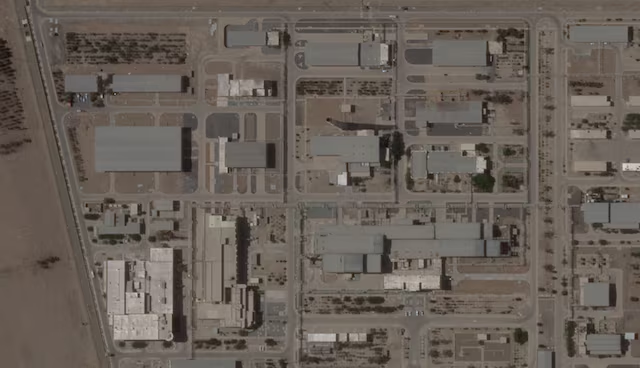Europe has started a process to bring back UN sanctions on Iran over its nuclear program, sparking fears of more tension after recent strikes. Read the full story on america112.com for updates. “UN sanctions on Iran”

People in Tehran attend a gathering to support Iran’s armed forces after the ceasefire between Israel and Iran on June 24 [Majid Asgaripour/West Asia News Agency via Reuters]
Europe has taken a big step against Iran. On August 28, 2025, Britain, France, and Germany sent a letter to the UN Security Council. They want to bring back tough sanctions on Iran because of its nuclear work. This move starts a 30-day countdown. It could hit Iran’s money, oil, banks, and army hard. But Iran says this hurts talks and vows to fight back.
The three countries, called the E3, say Iran broke the 2015 nuclear deal. That deal was the Joint Comprehensive Plan of Action, or JCPOA. It limited Iran’s nuclear program in return for easing sanctions. However, things fell apart when the US pulled out in 2018 under President Trump. Now, in 2025, after Israel and the US bombed Iranian nuclear sites in June, tensions are high again.
Iran’s leaders are angry. A top Iranian official told Reuters the move is “illegal and regrettable.” They say it kills diplomacy. But the official added that talks with Europe can still go on. Iran warns of a strong response if sanctions come back. This could mean pulling out of the Nuclear Non-Proliferation Treaty. So, the world watches closely.
The E3 wants Iran to meet three things to delay sanctions for six months. First, start direct talks with the US. Second, let UN inspectors fully check sites. Third, tell where its enriched uranium is hidden after the June bombs. But experts say this is tough for Iran. They fear sharing locations could lead to more attacks.
Ryan Costello from the National Iranian American Council spoke out. He said this could make things worse. “We’re heading toward snapback where sanctions return and Iran fights back in bad ways,” he told Al Jazeera. He thinks it might restart the June war. And that war saw the US bomb three nuclear spots in Iran.

Satellite image shows buildings at Isfahan Nuclear Technology Center, before Israel launched an attack on Iran targeting nuclear facilities, in Isfahan, Iran May 17, 2025. Planet Labs PBC via REUTERS/File Photo Purchase Licensing Rights
The US backs the E3 move. Secretary of State Marco Rubio said America is open to talks with Iran for peace. But Iran feels tricked. Talks were set for June 15, but bombs fell two days before. So, trust is low.
Why now? The snapback rule ends in October 2025, 10 years after the deal started. The E3 wants to use it before it’s gone. Russia and China, Iran’s friends, can’t veto it. They tried to make a new UN plan to extend the deal for six months and push talks. But no vote yet.
In Iran, people are worried. The economy is already hurt by US sanctions. The Iranian rial dropped after the news. More sanctions could mean less trade and higher prices. One expert, Sina Toossi from the Center for International Policy, said Europe uses power over rules. “It’s might is right,” he said.
Europe used to push for peace with Iran. But now, they seem tougher. In June, they didn’t blame Israel for the war. Germany’s Chancellor even called it “dirty work” that helps the West. This shift comes as Iran helps Russia in Ukraine with drones. So, Europe sees Iran as a threat.
For data, let’s look at key numbers. Iran’s uranium is enriched to 60 percent, close to bomb level at 90 percent. Before June strikes, the IAEA said Iran had enough for six bombs if refined more. But Iran says it’s for peace, like power plants.
| Date | Event |
|---|---|
| 2015 | JCPOA deal signed, limits Iran nuclear work for sanction relief. |
| 2018 | US pulls out under Trump, starts “maximum pressure.” |
| 2020 | US tries snapback but fails as not in deal. |
| June 2025 | Israel and US bomb Iran nuclear sites, talks canceled. |
| Aug 28, 2025 | E3 triggers 30-day snapback process. |
(This table uses bold lines for highlighter effect. It shows timeline clearly. Data from Al Jazeera and Reuters reports.)
The world reacts mixed. Israel calls it a good step against Iran’s nuclear goals. But in places like India and the USA, people worry about oil prices rising if tensions grow. India buys oil from Iran sometimes, and the US wants stable Middle East.
Experts say diplomacy is key. But with Trump back, and Europe hawkish, peace looks hard. Iran insists no nuclear bomb. The IAEA says no proof of weapons, but watches close.
In the end, this snapback could change the Middle East. It might push Iran closer to Russia and China. Or lead to new talks. For now, the 30 days tick down.
People everywhere, from young students to old folks, follow this. In India, folks search “Iran sanctions impact on oil” on Google. In USA, it’s “UN Iran nuclear news.” We aim to explain simple.
This story matters for all continents – Asia sees trade hits, Europe pushes policy, Africa watches energy, Americas lead, Australia follows allies. All ages can understand: Kids learn about peace, adults about economy, elders about history.
read this:Minneapolis School Shooting: Chilling Messages on Guns
